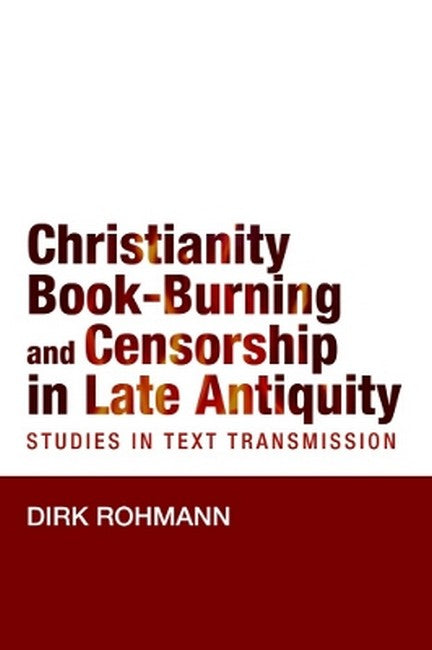Dirk Rohmann is Lecturer in the Department of History at the University of Wuppertal.
Request Academic Copy
Please copy the ISBN for submitting review copy form
Description
Das Buch stellt als erste ausfuehrliche Behandlung einer kaum gewuerdigten Thematik einen wichtigen Beitrag dar...Es handelt sich um die erste systematische und umfassende Studie zu dieser Thematik und nicht nur gemessen daran hat Rohmann gute Arbeit geleistet. -- Raphael Brendel -- Bryn Mawr Classical Review "Rohmann's book does an excellent job of demonstrating that although a disproportionate amount of non-Christian written work was lost during late antiquity the reason for this loss was not the coercive book-burning advocated by popular lore. Although acknowledging that actual book-burning did occur Rohmann places the book-burning into context and provides a viable explanation for the significantly disproportionate loss of non-Christian materials through this period. The footnotes and bibliography provide valuable resources for the reader." -- Joseph Baumstarck, Jr. -- The Christian Librarian "...Rohmann's work is a well-researched academic study drawing upon an impressive number of sources, including Christian and pagan authors, as well as legal documents, both Roman and ecclesiastical...[It] will certainly be of interest not only to the scholars and students of late antiquity but also to a broader audience interested in the history of the written word." -- Evgenia Moiseeva -- Review of Biblical Literature this is a useful introduction to an interesting topic -- David Woods -- Journal of Theological Studies This is a fascinating study. Rohmann has provided students of Christianity with one of the most engaging studies I have yet read. The topic is captivating and the development of the subject is meticulous and wise. This book is literally packed with important historical details which fill in the gaps about an early Christian practice which raises eyebrows among those who may not know the whence and why of book burning. It ought to be read by those with an interest in the intellectual history of the early Church and by those with a fondness for the peculiarities of some Christian practices -- Jim West -- Reading Religion

